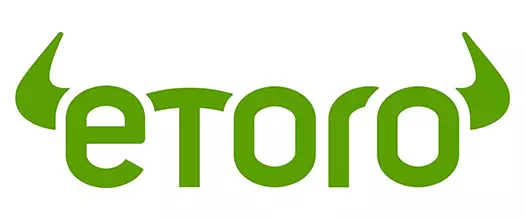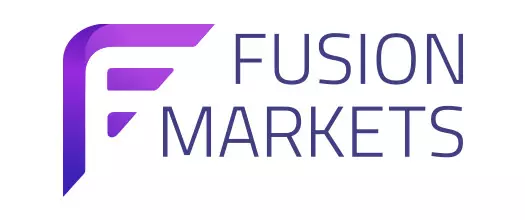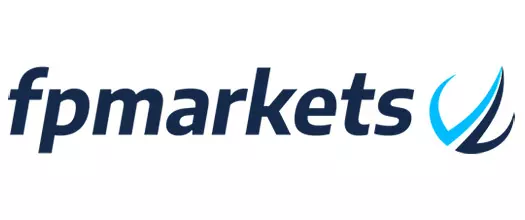- Jump to:
- Main features of the best Mexico Forex brokers
- Forex Legislation
- Financial Regulators
- Payment Methods
- Trading Software
- Mobile Trading
- FAQ
Our team of expert traders has tested many regulated and trustworthy forex brokers that accept traders from Mexico, and has compiled a top list of the best of them. Each broker operating in Mexico has received a quality score based on several factors, including its Trustpilot rating, regulation, fees and commissions, available trading platforms, customer service, and more.
 Plus500 USThis content applies only to Plus500 US and clients from the United States. Trading futures involves the risk of loss.
Plus500 USThis content applies only to Plus500 US and clients from the United States. Trading futures involves the risk of loss. eToro61% of retail investor accounts lose money
eToro61% of retail investor accounts lose money Fusion Markets74-89% of retail's CFD accounts lose money
Fusion Markets74-89% of retail's CFD accounts lose money FP Markets73.85% of retail investor accounts lose money
FP Markets73.85% of retail investor accounts lose money Global Prime74-89% of retail CFD accounts lose money
Global Prime74-89% of retail CFD accounts lose money Pepperstone75.5% of retail investor accounts lose money
Pepperstone75.5% of retail investor accounts lose money
Below you can find a comprehensive comparison table of forex brokers for traders in Mexico. We rank them based on several factors, including regulation, spreads and commissions, Trustpilot rating, trading instruments, trading platforms, and deposit and withdrawal methods.
Our team has thoroughly evaluated all brokers listed below using TradingPedia’s exclusive methodology.
Main features of the best Mexican forex brokers
- Brand
- Trading platforms
- Minimum deposit
- Regulations
- Trading instruments
- Spreads
- Leverage for Forex CFDs
- Leverage for Crypto CFDs
- Leverage for Indices CFDs
- Deposit methods
- Withdrawal Methods
- Commission per Lot
- Contact details
With an estimated population of nearly 130 million, Mexico is the most populous Spanish-speaking country in the world. Its economy, although still considered developing, is among the largest and strongest Latin American economies. It has a stable financial sector, as well as rapidly developing financial markets, while the national currency, the Mexican peso (MXN), ranks eighth in the world for global liquidity, behind major currencies such as the USD, EUR, JPY and GBP.
Mexican investors can easily access the foreign exchange market, as trading forex pairs is completely legal in the country. However, most local brokers focus on giving their clients access to the equities markets rather than offering forex trading. As an alternative, Mexican traders can register with foreign FX and CFD brokerage firms, which can operate freely in the country without a licence or other type of authorisation from local regulators. Still, several authorities are responsible for forex market oversight in Mexico, including the Central Bank.
Overall, Mexico does not have the largest or most advanced foreign exchange market in the Americas, but forex trading is quickly growing in popularity among local investors. In addition, the Mexican Stock Exchange, commonly known as Mexican Bolsa (BMV), is the second-largest Latin American stock exchange after the São Paulo-based B3.
Mexican forex legislation
Before looking at the legislation that governs the foreign exchange trade in Mexico, we should note that trading forex is subject to relatively few restrictions. In contrast, the country has tough regulations when it comes to the securities markets and the stock exchanges, in particular. There are only two stock exchanges in Mexico, namely the Mexican Stock Exchange (BMV) and the Institutional Stock Exchange (BIVA).
The main legal framework is the Securities Market Law (Ley del Mercado de Valores), although it does not contain detailed provisions regarding the regulation of forex trading in the country. The law was passed in December 2005 by Mexico’s House of Representatives and by the Senate, and came into effect soon afterwards upon publication in the Official Gazette of the Federation. It updated the legal framework applicable to all market participants, including stock exchanges, clearing agencies, securities depository institutions, and broker-dealer firms.
The Securities Market Law also sets out the main requirements for a primary listing on the stock exchanges – for instance, two types of companies may be listed: those incorporated as a limited liability corporation (Sociedad Anónima Bursátil, SAB) and those incorporated as a more flexible limited liability corporation created to support new businesses and ventures (Sociedad Anónima Promotora de Inversión Bursátil, SAPIB). In addition, the law provides definitions of institutional and qualified investors.
According to the current legislation, only authorised broker-dealers established in Mexico can offer registered securities in the country. There is no such restriction when it comes to forex trading, however. Most brokers in the country do offer access to the foreign exchange market, but their offering is often limited to just a few major currency pairs. Foreign online brokers, on the other hand, usually offer between 40 and 80 currency pairs.
Moreover, offshore brokers are not required to obtain a local licence in order to accept clients from Mexico. Still, local investors are advised to work only with licensed brokers that comply with international forex market regulations. These are usually brokers registered and licensed by major regulators, including the Financial Conduct Authority in the UK or the Cypriot CySEC (Cyprus Securities and Exchange Commission).
In addition, Mexico is a participant in the Global Foreign Exchange Committee (GFEC), an international organisation established in 2017 with the purpose of promoting a fair, liquid and transparent forex market. The committee includes multiple central banks, as well as private-sector forex market participants who comply with the FX Global Code, a code of conduct that sets out good practices in the sector.
The Mexican Foreign Exchange Committee (MFXC) was founded in Mexico to promote adoption of the Global Code, and it keeps a register of all banks and companies that commit to following the code. The public register can be found on the website of the Central Bank of Mexico (Banco de México, abbreviated BdeM or Banxico). It includes dozens of banks, brokers and investment advisers, asset managers, insurance companies, pension funds, and e-trading platforms that are registered and licensed in Mexico.
Mexican financial regulators
The Central Bank of Mexico (Banxico) oversees all forex-related activities in the country. The bank is responsible for implementing the country’s monetary policy and for maintaining the purchasing power of the national currency, the Mexican peso. Its main objective is to keep inflation low and stable, and it has largely achieved this, as the peso is currently the strongest and most stable currency in Latin America.
Another authority that supervises the financial sector in the country is the National Banking and Securities Commission, or Comisión Nacional Bancaria y de Valores (CNBV). It regulates various financial institutions, including banks, financial companies, brokerages and advisers, as well as mutual fund companies. The main function of the CNBV is monitoring; however, it also strengthens preventive measures for combating organised crime and fraud. The commission also investigates any breaches of the current regulations.
Mexican forex payment methods
The vast majority of online forex brokers available to Mexican investors are fully regulated in other jurisdictions, usually in Europe, Australia or the UK. This is why forex traders will probably want to find a broker that accepts deposits in the Mexican peso (MXN). Some of the world’s leading brokers even allow their clients to set MXN as a base account currency. This is extremely important for those investors who want to avoid additional currency conversion fees.
Another point to consider is the range of payment options offered by different online forex brokers. In some cases, a broker may simply not be suitable for investors based in Mexico. It is important to know that, although the country hosts the second-largest e-commerce and digital payments market in Latin America, most internet users still prefer cash and cash-on-delivery options, including Oxxo. These options, however, are not available for online forex trading.
The digital payments market is clearly dominated by credit and debit cards – usually Visa- and Mastercard-branded, although American Express is also accepted in Mexico. However, local debit cards are far more popular than credit cards – practically everyone in the country holds at least one debit card issued by HSBC, Banamex, Banorte, BBVA Bancomer or Santander. Investors should, however, be aware that most local debit cards do not support payments in foreign currencies.
Another interesting fact is that roughly a quarter of all Mexicans have an online bank account, and online banking is still not very popular. Wire transfers, on the other hand, are often offered by forex brokers, but they usually take longer to process and are associated with high fees. A great alternative to this traditional payment method is the digital wallet. E-wallets, as they are also known, are incredibly secure and convenient, fast and cost-effective, which makes them a preferred option for many people around the world.
Mexico is no exception, and an increasing number of online shoppers and forex traders here are opening accounts with PayPal. Other e-wallets such as Neteller and Skrill are also available, although they are less popular. The Latin American digital wallet MercadoPago can also be found on the websites of certain forex brokers. Originating in Argentina, this service is rapidly growing in Central and South America and can also be used from mobile devices.
Popular trading software in Mexico
To trade on the foreign exchange market, investors need the professional services of a forex broker, as well as suitable trading software. A good software platform should provide all the features a trader may require, depending on their level of experience and understanding of the forex market. This includes robust charting capabilities, numerous technical indicators, fast performance, position management, and a continuous financial news feed.
Traders interested in forex should, of course, look for platforms that provide access to a large number of major and minor currency pairs. For instance, software systems designed for stock trading usually offer only a handful of forex pairs. There are, on the other hand, platforms specifically designed to cater to forex traders – on them you can usually trade up to 90 currency pairs, including the most exotic ones. Last but not least, Mexican traders should look for a platform that is available in Spanish.
Many of the leading online forex brokers offer their clients proprietary software. This can be a great option, as most such systems come with plenty of useful features. The majority of traders, however, prefer more standard options, namely MetaTrader 4, or MT4. Released 15 years ago by Russian developer MetaQuotes Software, MT4 has become the most widely used forex trading system in the world – over 90% of all forex traders have MT4 accounts. The platform offers three trade execution modes, including Instant Execution, 30 built-in indicators, trading robots, advanced trading operations and copy trading.
MetaTrader 5 is another powerful platform by the same company, but it was designed for trading stocks, futures and other instruments, along with forex pairs. It features advanced tools for technical and fundamental analysis, superior trading functions, 80 built-in technical indicators and analytical objects, and many more features. Other popular types of trading software for forex include cTrader and NinjaTrader.
Mobile trading in Mexico
Mobile phones have changed dramatically over the past decade – even more so when compared with 20 years ago. Rather than using them merely for speaking to friends and family, we now use them for connecting with others, shopping, doing business or entertainment. The rapid development of technology has allowed us to play mobile games, stream live content and access sophisticated software on our devices.
Modern mobile technologies have also been revolutionising the forex market in recent years, and Mexico follows this global trend. An increasing number of people now access their trading accounts, deposit and withdraw funds, and open and close positions directly from their mobile devices. In forex, a highly liquid and volatile market, the convenience and flexibility of mobile trading apps have become essential to investors. With a good, reliable trading app, they have 24/7 access to their trades, high-quality financial news feeds, and customised notifications and trading signals.
Most forex brokers available in Mexico offer fully functional mobile trading applications for Android and iOS. To use them, investors simply need to download and install the apps on their devices, sign up and start trading. Practically all trading apps can be downloaded free of charge from Apple’s App Store or Google Play. However, to be used for live trading, they must be linked to live accounts – rather than a demo account, traders need to make a deposit and trade with their own funds.








